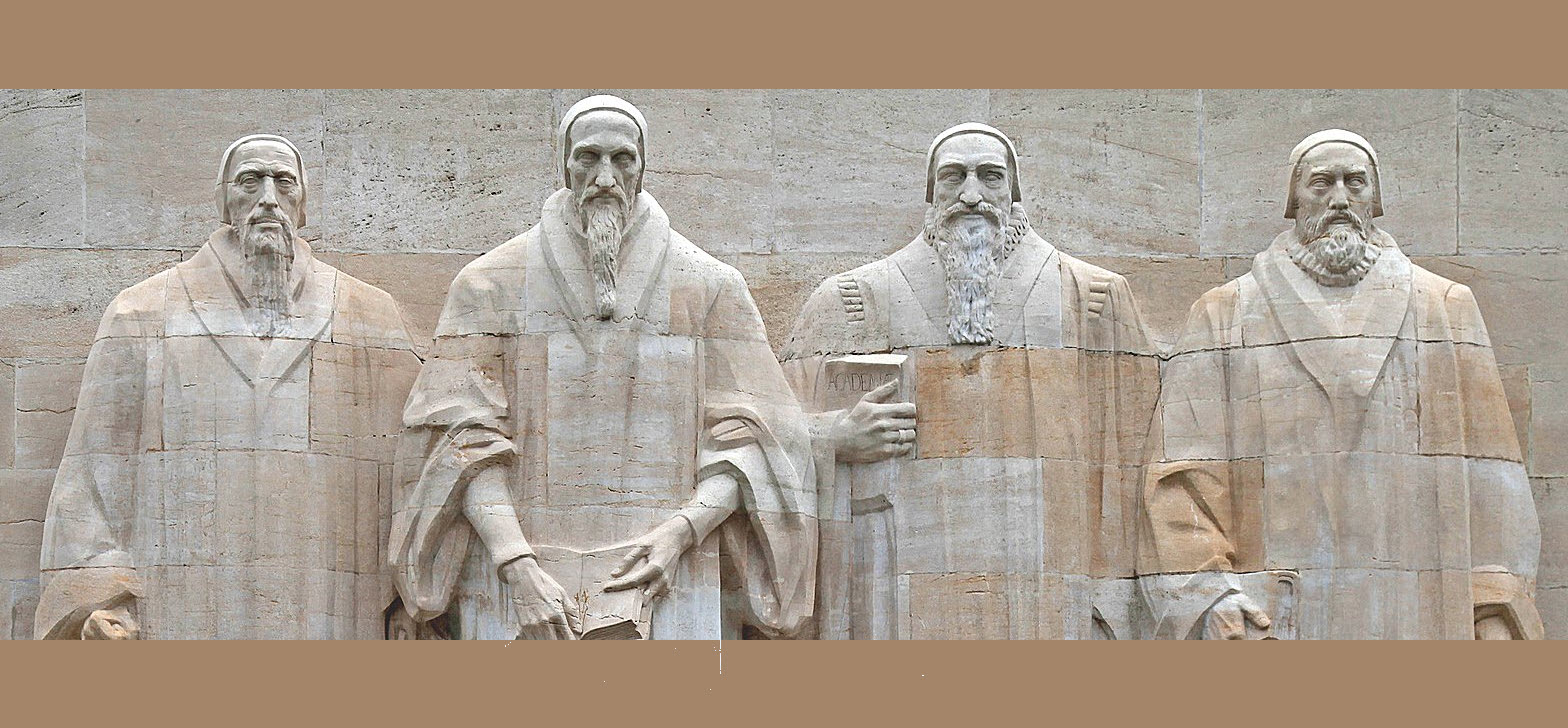Reformation Wall in Geneva Statues to William Farel, John Calvin, Theodore Beza, and John Knox, the founders of the Reformed theological tradition to which the PCA subscribes
What is Calvinism?
Calvinism is a branch of of Protestantism that adheres to the theological traditions and teachings of John Calvin and other preachers of the Reformation-era. Calvinists broke from the Roman Catholic Church in the 16th century, having different beliefs of predestination and election of salvation, among others. Calvin believed that salvation is only possible through the grace of God (GRACE: God’s Riches At Christ’s Expense). In other words, all of salvation is a gift by God’s grace, from start to finish. (Eph. 2:8-9; Rom. 3:24)
It’s a system of biblical doctrine that grew out of a deep conviction that God’s glory is the goal of all things, and that his freedom and his sovereignty are essential to his deity. Because God is free and sovereign and glorious, he doesn’t need to be served by anyone to meet his needs and, therefore, he is gloriously free to be gracious to us. Those that follow the Westminster Confession of Faith (Larger and Shorter Catechisms) know that question #1 is “What is the chief end of man?” and the answer is “Man’s chief end is to glorify God, (1 Cor. 10:31) and to enjoy him forever. (Ps. 73:25-28)”
Our Presbyterian Church in America (PCA) affirms their association with Calvin’s principles, stating: “a firm commitment on the doctrinal standards which had been significant in Presbyterianism since 1645. … These doctrinal standards express the distinctives of the Calvinistic or Reformed tradition.”
Calvinism 101 (Crossway Podcast) – Kevin DeYoung unpacks Calvinism, summarizing the famous five-points summarized in the TULIP acrostic, the problem with cage-stage Calvinists, and the one question he’d ask Armninians to consider.
Five Points of Calvinism (TULIP)
TULIP and Reformed Theology: An Introduction from R.C. Sproul with links to each of the five points of Calvinism.
- Total Depravity
- Unconditional Election
- Limited Atonement
- Irresistible Grace
- Perseverance of the Saints

The Five Solas Pillars of the Reformation
Are five Latin phrases that represent the core positions held by those who adhere to the Protestant Reformation that happened in the 16th century. They are more commonly recognized within the Reformed (Calvinist) perspective. The Five Solas are: Sola Scriptura (Scripture Alone), Sola Christus (Christ Alone), Sola Gratia (Grace Alone), Sola Fide (Faith Alone), and Sola Deo Gloria (For God’s Glory Alone). See a summary description of The Five Solas of the Reformation by C.H. Spurgeon.

Calvinism vs. Arminianism
Both try to explain the relationship between God’s sovereignty and man’s responsibility, in the matter of salvation. So, which view is correct? What are the five points of Calvinism vs. the five points of Arminianism? Here’s a brief video overview.
Calvinism | Covenantal | Confessional
